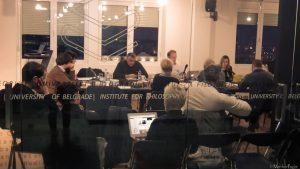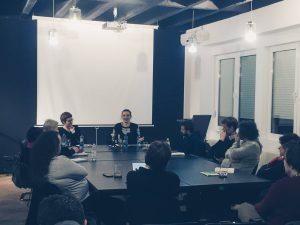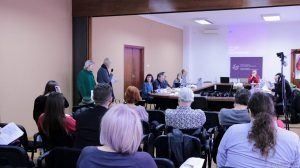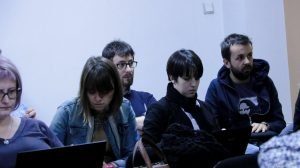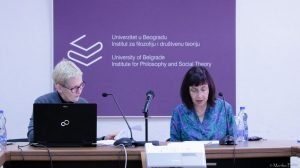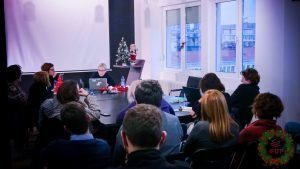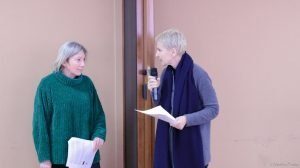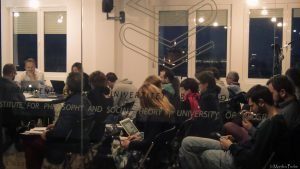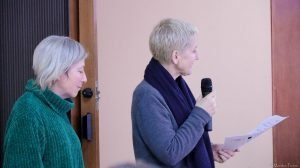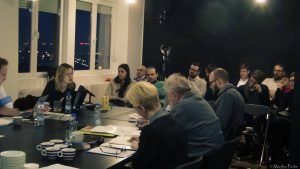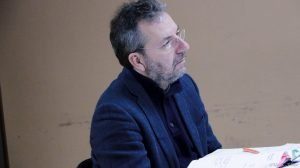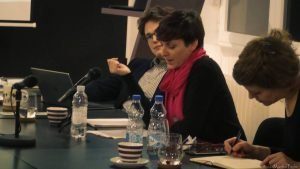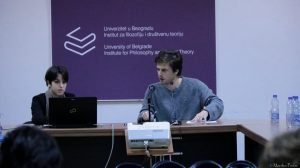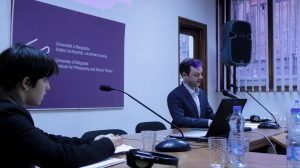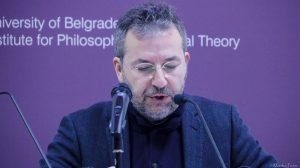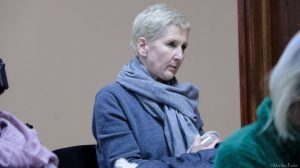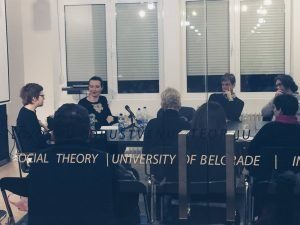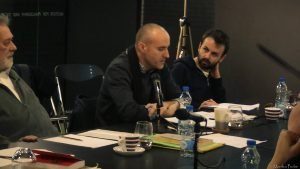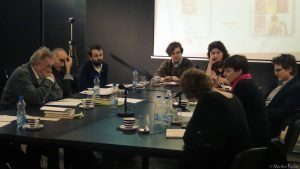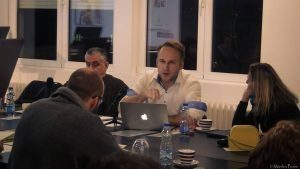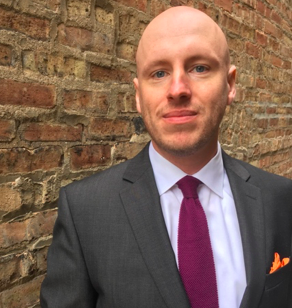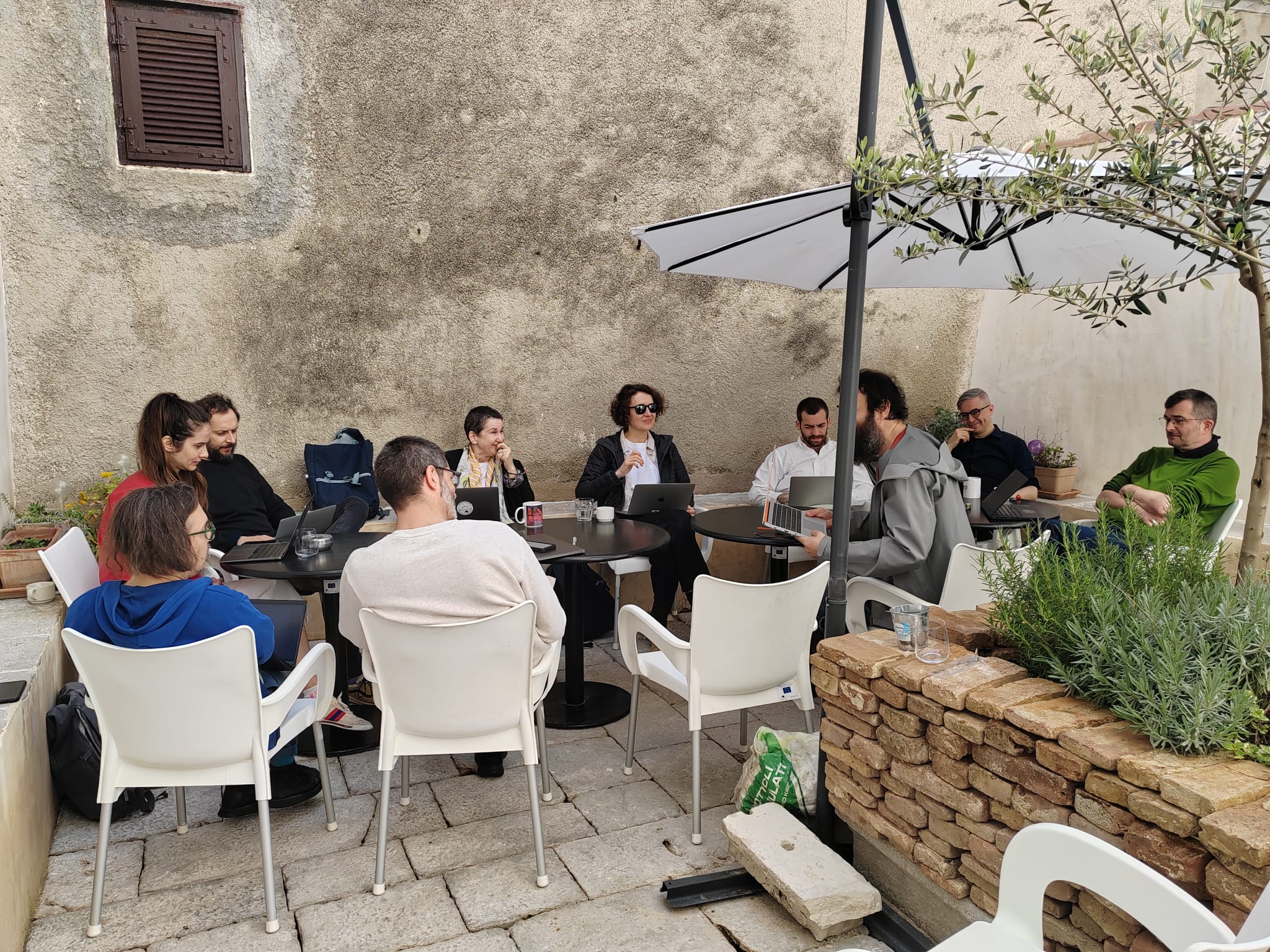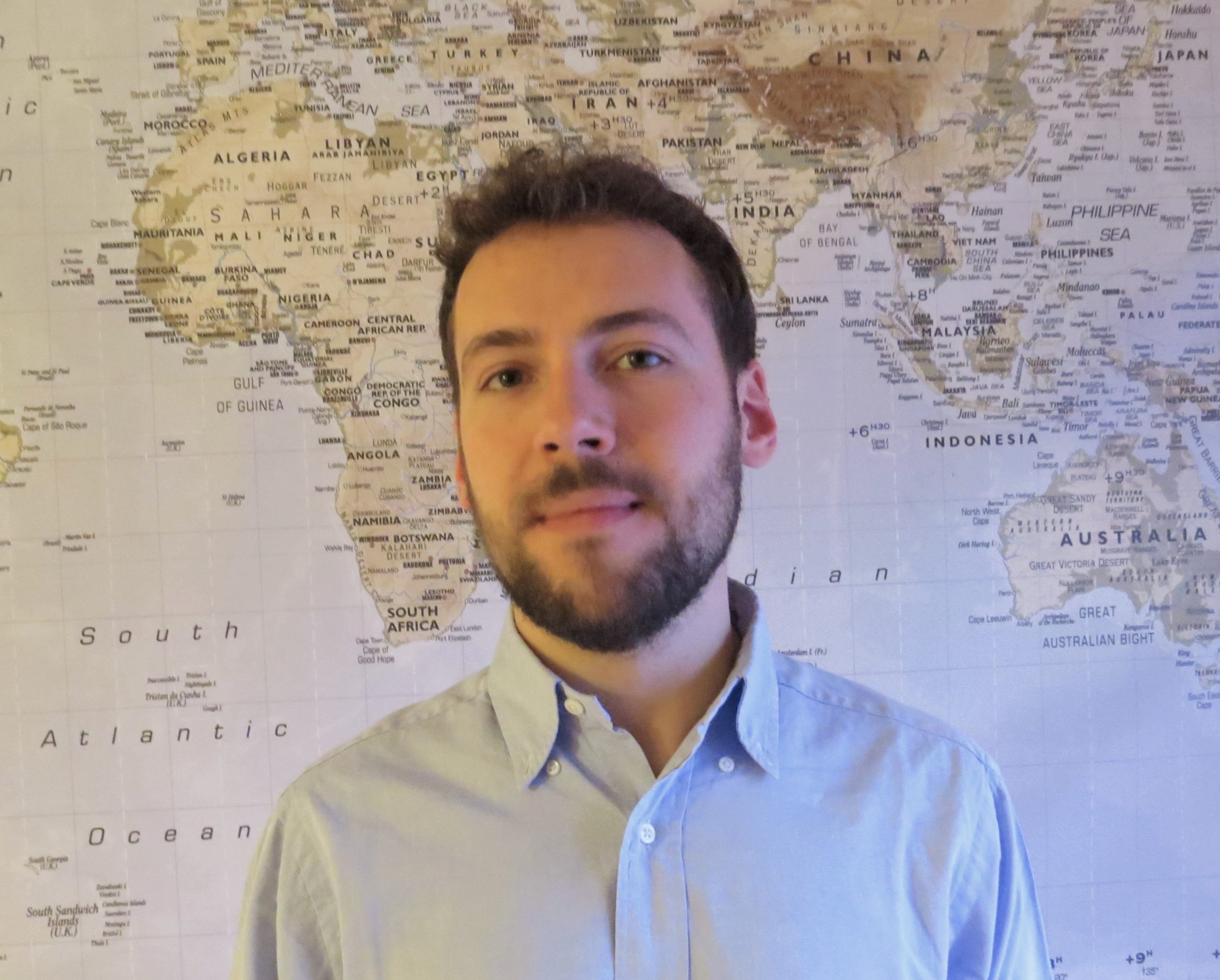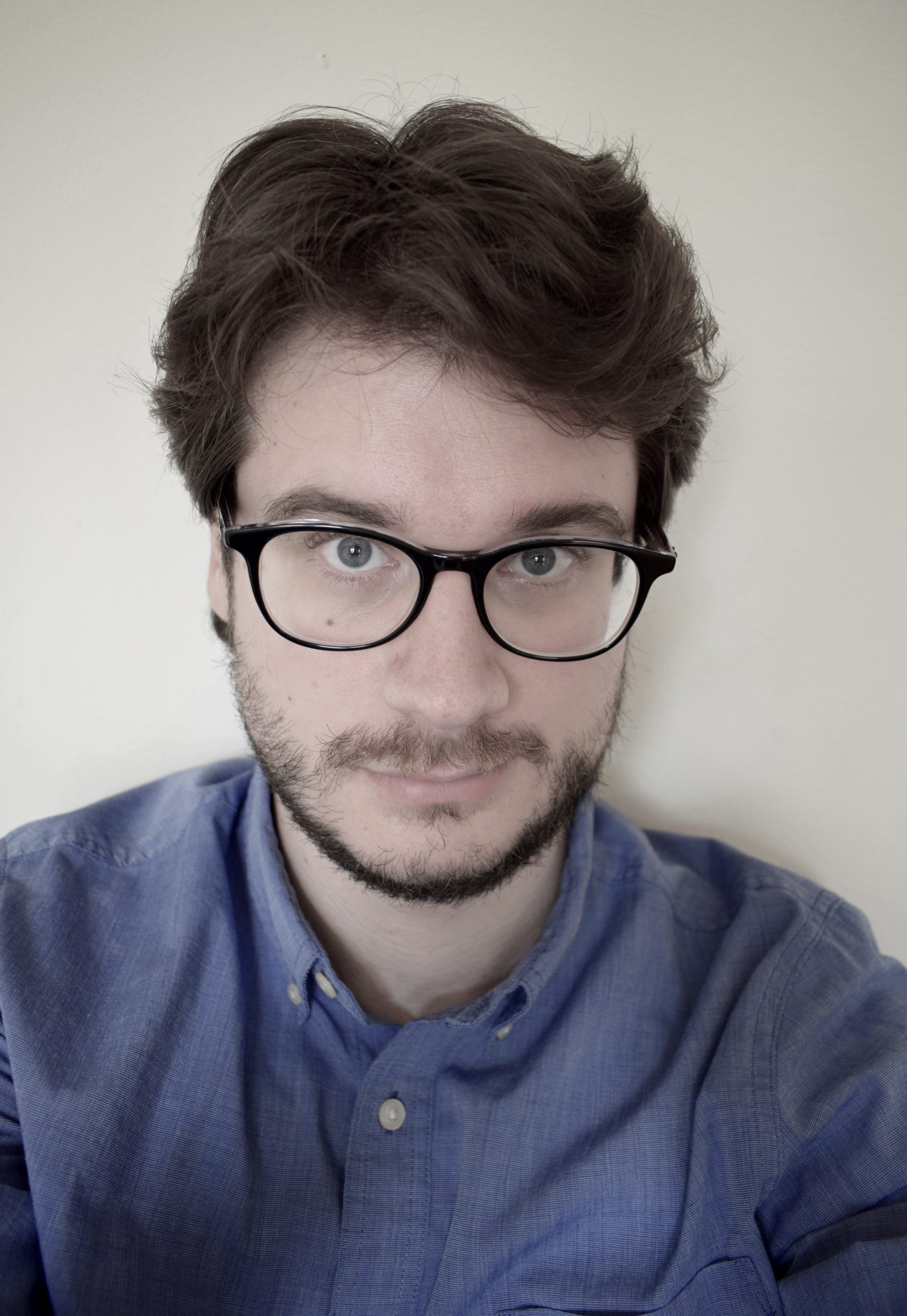The conference investigated the concept of testimony, notably war testimony, from different perspectives, i.e., literature, philosophy, sociology and political activism.
The first day of the conference and a roundtable on the third day were entirely devoted to the analysis of the holocaust poet Paul Celan through the contributions of Sue Vice, Pajari Räsänen, Matthew Boswell and Nina Čolović. A philosophical analysis of Celan’s poetry was provided by Petar Bojanić, while Bertrand Badiou was a key figure, providing testimony of Paul Celan’s poetry and biography.
The second day, with panels chaired by CAS Fellows Mónica Cano Abadía and Olimpia Loddo, focused on the role played by poetry in the testimony of the Yugoslav war. A first-hand testimony was offered by the Bosnian writer Asmir Kujović, while Lidija Dimkovska, a Macedonian writer based in Slovenia, paid a moving tribute to a long list of writers that are the voice of a post-Yugoslav languages. Andrijana Kos-Lajtman analyzed the influence of Dadaism on Manifest Mlade Bosne by Darko Cvijetić. Senadin Musabegović described the role played by poetry in testifying the real face of nationalism.
In the panel “Rhetoric, Politics and Poetry after Yugoslav Wars,” Jay Surdukowski showed how Radovan Karadžić used poetry to justify his war crimes. In her presentation To War or to Write, Elizabeta Šeleva described poetry as a means to redesign reality through the creation of an alternative “literary ought.” Goran Lazičić described the rhetoric and politics of testimony in the novels of the Serbian writers Svetislav Basara and David Albahari.
During the third day of the conference, with panels chaired by CAS Fellow Davide Pala, Olivera Marković-Savić showed the use and misuse of the term ‘veteran’ after the end of the Yugoslavian war, and she stressed the legal misrecognition of veterans by the Serbian state. Šeherzada Džafić talked about poetry focussing on war as a powerful form of both testimony and ethical learning, while Selma Zilić Šiljak presented the clash between dominant narratives of war and the horizontal and private accounts of it in Velika Kladuša.
In the first panel of the fourth and last day, chaired by CAS Fellow Mišo Kapetanović, Cornelia Grabner gave voice to the Movement for Peace in Mexico, while Robert von Hallberg focused on the relationship between testimony and poetry in the US. Danijela Majstorović shared her research on the construction of the Yugoslav new woman and the role of the Women’s Antifascist Front (AFŽ). Marzuq Al Halabi talked about Mahmoud Darwish, the prophet of the Palestinian revolution who created a bridge between Palestine and other international movements.
The last panel, chaired by Marco Abram (Osservatorio Balcani e Caucaso), revolved around memorial sites in Rwanda (Matthew Boswell) and the role of women poets in the peace process in Colombia (Cherilyn Elston). Afterwards, Djurdja Trajković moderated a roundtable in which the role of poetry as a form of testimony was discussed. A poetry reading about conflicts in peripheral capitalism closed the conference.
After the conference, the Institute for Philosophy and Social Theory of Belgrade hosted one workshop and two lectures. The workshop consisted in a critical discussion of the important book “Race, Nation, Class: Ambiguous Identities” by Etienne Balibar and Immanuel Wallerstein. Fourteen commentators highlighted different aspects of it, e.g., the relation between race and nation (e.g., Carlo Burelli, Davide Pala), on the one hand, and the link between race and gender, on the other hand (e.g., Mónica Cano Abadía). Djurdja Trajković closed the workshop by stressing the strict historical connections between nationalism, racism, and classism. The first lecture, given by Manuela Bojadžijev and entitled “Is (neo-)racism a form of violence of the past?”, provided a conceptualization of the distinctive features of racism and a great overview of the main literature analyzing racism from the 50’s onwards. The second lecture, given by Sanja Milutinović Bojanić and entitled “Rhetoric of Emancipation vs. Rhetoric of Misogyny”, showed the central traits of the rhetoric of both emancipation and misogyny and illustrated them through the analysis of several historical occurrences of both emancipation and misogyny.
– CAS SEE Fellows

